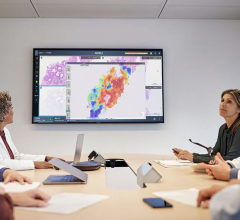June 5, 2014 — The American Society for Radiation Oncology (ASTRO) has garnered a record-breaking total of 2,874 abstracts submitted for selection for the 56th annual meeting: 1,681 studies are from researchers in the United States, followed by 575 studies from Asia [Japan (206), China (191), Korea (93), Taiwan (33), India (31), Hong Kong (8), Singapore (7), Philippines (3), Thailand (2) and Malaysia (1)]; 171 studies from Canada; 54 studies from Germany; and 31 studies from the United Kingdom. The scientific presentations will include up to four plenary papers, 360 oral presentations, 1,862 posters and 144 digital posters in more than 50 educational sessions and for 20 disease-site tracks and topics including radiation biology, radiation physics, palliative care, patient safety and patient-reported outcomes.
The 2014 annual meeting will be held Sept. 14-17, at San Francisco’s Moscone Center, and is expected to attract more than 11,000 attendees including oncologists from all disciplines, medical physicists, dosimetrists, radiation therapists, radiation oncology nurses and nurse practitioners, biologists, physician assistants, practice administrators, industry representatives and other healthcare professionals from around the world.
Led by ASTRO President Bruce G. Haffty, M.D., FASTRO, the theme of the 2014 meeting is “Targeting Cancer: Technology and Biology.” The Presidential Symposium, “Local-regional Management of Breast Cancer: A Changing Paradigm,” will feature Jay R. Harris, M.D., FASTRO, and Thomas A. Buchholz, M.D., FASTRO, to highlight recent practice-changing landmark studies and current developments in the local-regional management of breast cancer.
Three keynote speakers will address a range of topics including oncologic imaging, biology and targeting in oncology, and human error and safety concerns:
- Hedvig Hricak, M.D., Ph.D., chair, department of radiation oncology, Memorial Sloan Kettering Cancer Center;
- Frank McCormick, Ph.D., FRS, director, University of California San Francisco Helen Diller Family Comprehensive Cancer Center; and
- Sidney Dekker, Ph.D., professor, Safety Science Innovation Lab, Griffith University, Brisbane, Australia.
For more information: www.astro.org


 August 09, 2024
August 09, 2024 








